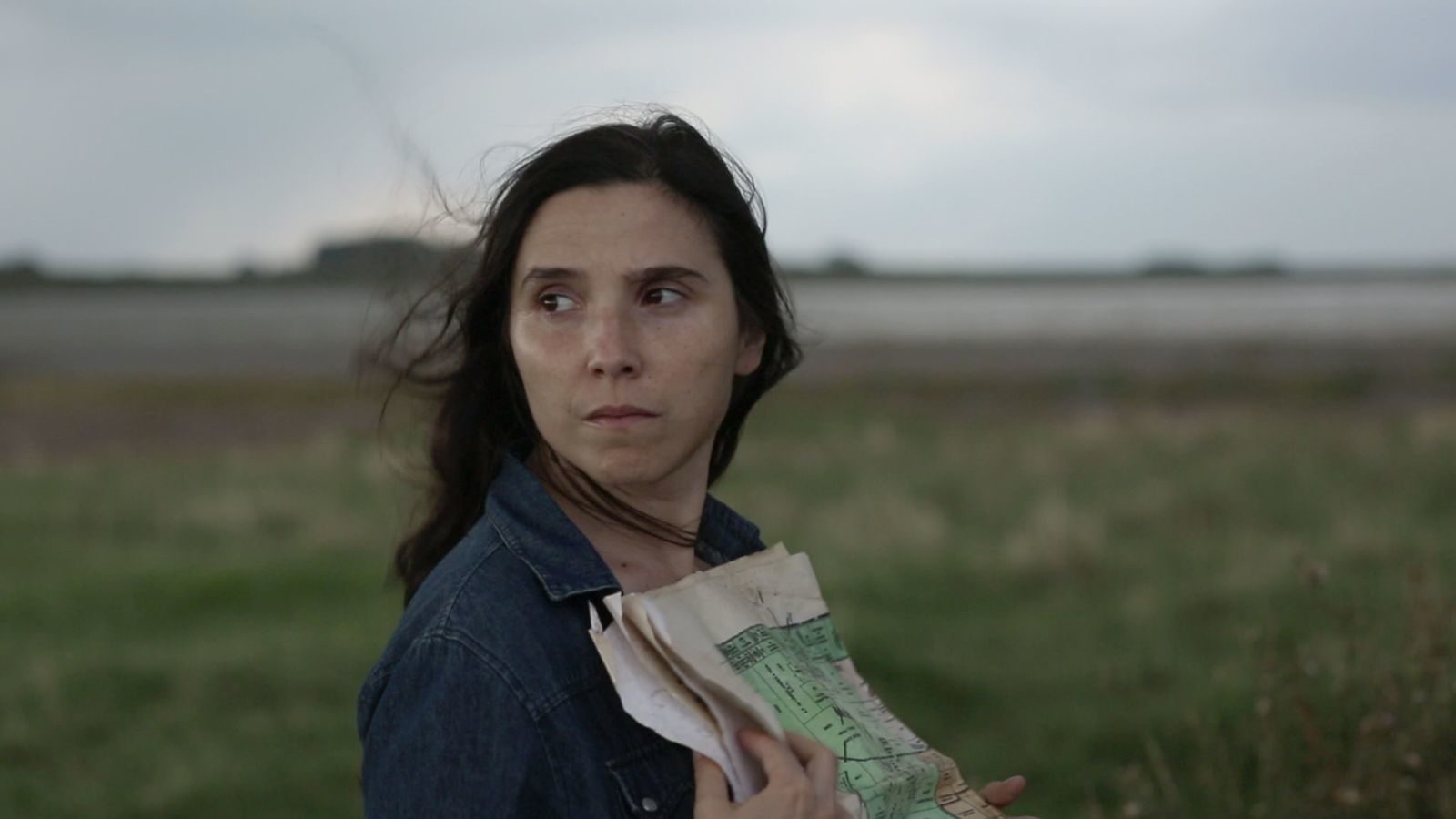Everyday mysteries have endless potential for spiraling out. A cryptic letter in a library book could lead to a labyrinth of questions, underseen histories, or even romance. In Trenque Lauquen, Laura Citarella’s epic, over four-hour mystery/romance/thriller, people follow these questions extensively, even if it means losing themselves in the mystery itself. The result is something that frustrates, enthralls, and eventually pays off.
Laura (played by the film’s co-writer, Laura Paredes) has gone missing. The two men closest to her, older boyfriend Rafael (Rafael Spregelburd) and colleague Ezequiel (Ezequiel Pierri) are searching for her. Laura, a biologist, was spending time in the small town of Trenque Lauquen, working on classifying a new flower, but has abandoned her work. At least that’s what it looks like on the surface. As the film’s story branches out and we jump across perspectives and timelines to get to the truth of Laura’s disappearance (including if she even wants to be found), we find out there’s much more to uncover.
For example, we learn that she and Ezequiel were on a quest to find the subject of romantic letters Laura discovered in a collection of books at the local library. We spend a lot of time with Laura and Ezequiel in the first part of the film, as we follow along with their discoveries and revelations about the subject of the letters, a woman named Carmen Zuna. It’s a classic romantic set-up, and over time, a budding attraction between Laura and Ezequiel builds as they research and recite the letters to each other, infatuated. In the second half, another mystery unfolds, involving a potential cryptid in Trenque Lauquen’s lake and Laura’s reasons for disappearing. The movie may let us hear from Laura herself about her motivations but it doesn’t reveal the truths behind the other mysteries despite having the time. It’s simply not concerned with them.
Instead, filmmaker Citarella uses these puzzles as vehicles for an inner search inside her main character’s psyche. We may not know what happened to Carmen Zuna, and we never see the cryptid kept safe by a lesbian couple, but we stick with Laura throughout. We follow her, get to know her, wonder about her disappearance, admire her drive and hunger, and soon understand that perhaps what she’s looking for is something beyond simple resolutions.
To that effect, Trenque Lauquen can be a frustrating watch – it offers no resolution to its main mysteries, but it can be hypnotic, too with its slow dissolves between past and present. The real-time conversations mean we’re learning information as the characters learn it, which may or may not work for you. I think Trenque Lauquen rewards viewers with something that goes deeper than the surface questions it’s asking. Instead, it emphasizes the importance of seemingly small moments in everyday life. In any other mystery, a plot point might be revealed through a quick conversation, and then move onto the next problem with ease. Trenque Lauquen takes its time, letting moments of tension and emotion build as we get a new piece of the puzzle. It’s engaging, rewarding, and refreshing to see a film luxuriate in moments that other filmmakers would take for granted.
In Citarella’s world, Laura doesn’t need the answers to every mystery she comes across. The journey, following the rabbit hole no matter where it goes, is enough to keep her going. It’s a rare thing for a movie to sit with the pleasures of chasing a secret so thoroughly and with such respect for its main character’s choices. It seems that Laura’s journey, through each mystery and then through her disappearance, has its rewards – even if they’re known only to her.

